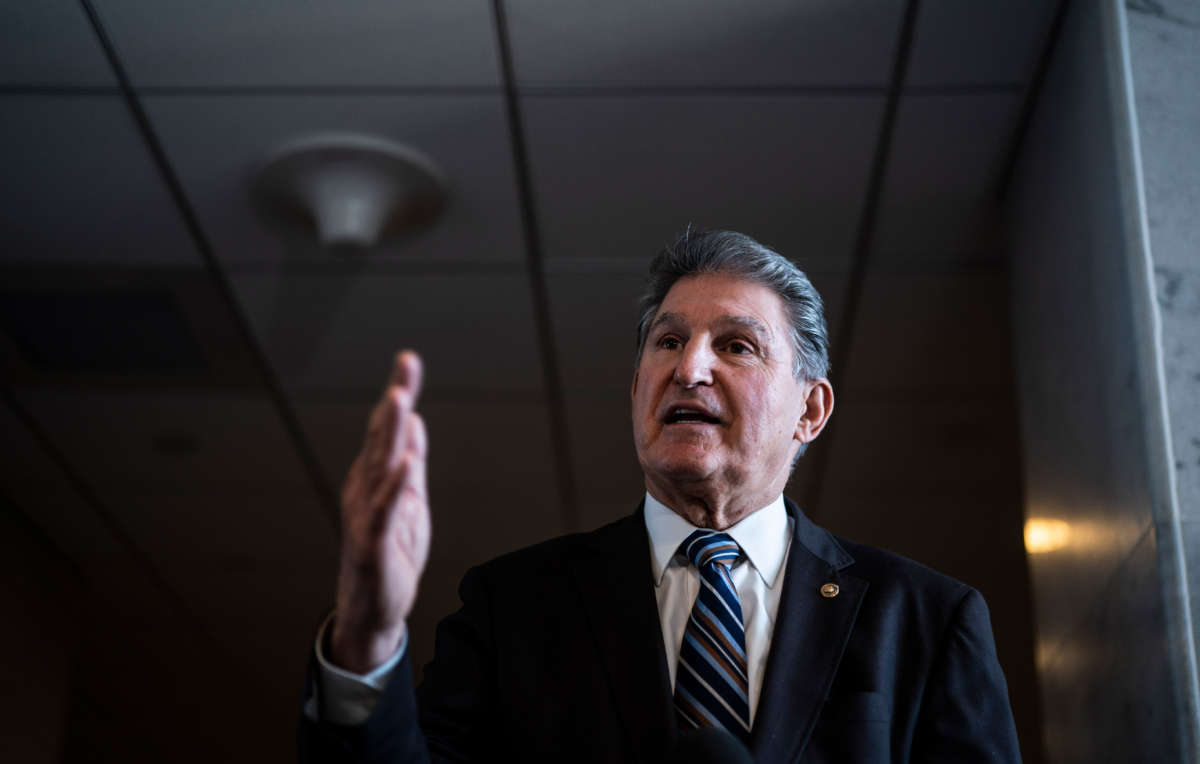Did you know that Truthout is a nonprofit and independently funded by readers like you? If you value what we do, please support our work with a donation.
Democrats have been negotiating with Sen. Joe Manchin, a right-wing Democrat from West Virginia, so that they can amend the filibuster rule and pass voting rights legislation. But Democratic insiders say the process has been difficult — and one source even compared it to “negotiating via Etch A Sketch.”
Insiders told Axios that Manchin has been inconsistent throughout negotiations, changing what he wants out of a deal from one day to the next.
“You think you’re just about there. You think you’ve got an agreement on most of the things and it’s settling in. And then you come back the next morning and you’re starting from scratch,” the source said.
That same source described the talks with Manchin as being “like negotiating via Etch A Sketch,” referencing a children’s toy that erases itself at the slightest disturbance or shake.
Democrats are focusing on finding a way to pass voting rights protections before the 2022 midterm races, in hopes of preventing Republican-run state legislatures from further disenfranchising voters across the nation. But Republican lawmakers have utilized the filibuster to block major voting rights bills four times in the past year, including a version of the For the People Act proposed by Manchin; for such a law to be passed without GOP obstruction, there must be changes to filibuster.
Even as Democrats promise to set up a vote on changing the filibuster later this month, Manchin refuses to get on board, claiming that the action is too partisan, even if it means passing much-needed voting rights legislation. Manchin has said that he doesn’t want to support a voting rights bill unless the bill is bipartisan, a demand many in the Democratic Party have said is unreasonable.
“The 15th Amendment was not a bipartisan vote,” Rep. James Clyburn (D-South Carolina) said in an interview over the weekend. “It was a single-party vote that gave Black people the right to vote.”
Democrats are trying to persuade Manchin to support one of a few possible changes to the filibuster. In negotiations, they have discussed removing the filibuster requirement for all bills relating to voting rights; lowering the threshold needed for a cloture vote on a filibuster; and returning to a “talking filibuster,” which would require senators to stand and speak non-stop.
Most of the negotiations seem to involve three moderate members of the Senate Democratic caucus, who until recently were also wary of changing filibuster rules. Sens. Tim Kaine (D-Virginia), Jon Tester (D-Montana), and Angus King (I-Maine) have all taken part in the talks with Manchin, trying to convince him to back the effort to change the rules.
Democrats have also been trying to entice Manchin in other ways, including getting big names to call his office directly. Per reporting from Politico, Manchin has received phone calls from former presidents Bill Clinton and Barack Obama, urging him to end his stubborn defense of the filibuster in its current form. Famed talk show host Oprah Winfrey has also reportedly called Manchin’s office to try to convince him that the filibuster isn’t worth defending if it means the right to vote is imperiled.
Press freedom is under attack
As Trump cracks down on political speech, independent media is increasingly necessary.
Truthout produces reporting you won’t see in the mainstream: journalism from the frontlines of global conflict, interviews with grassroots movement leaders, high-quality legal analysis and more.
Our work is possible thanks to reader support. Help Truthout catalyze change and social justice — make a tax-deductible monthly or one-time donation today.
